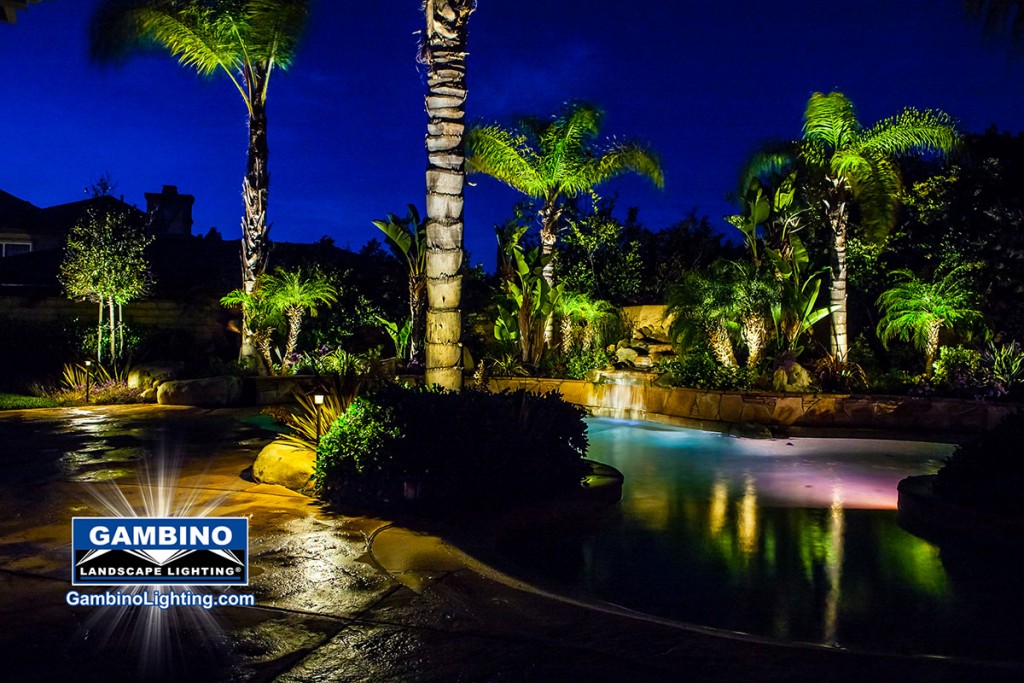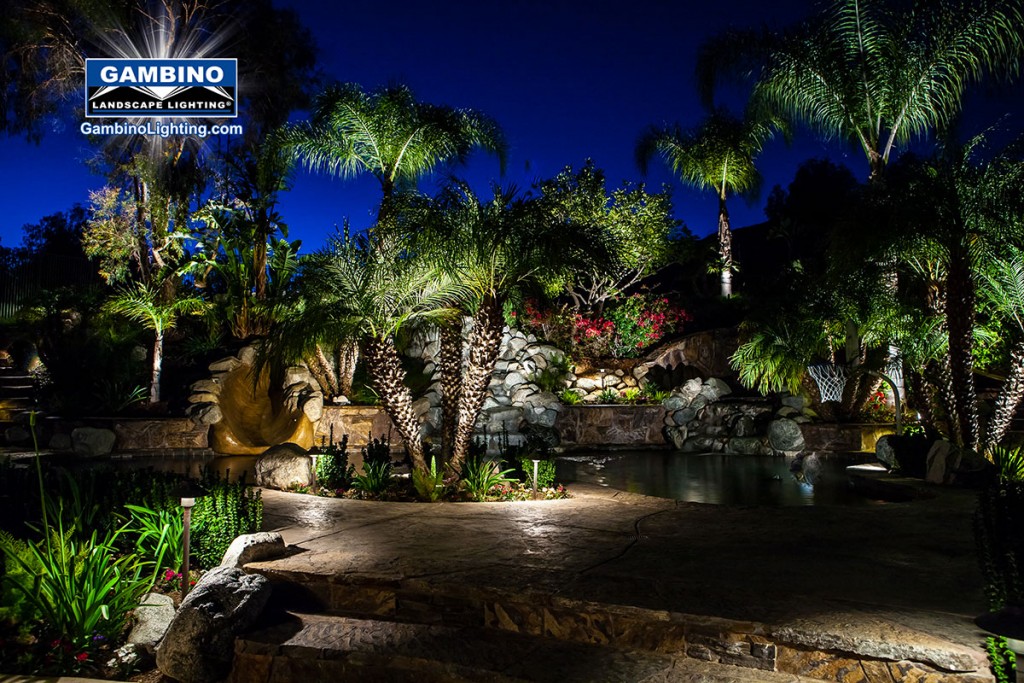01 Jul The Upside of being a Landscape Lighting Perfectionist part 1
By Mike Gambino
I admit it, I Michael Gambino am a landscape lighting perfectionist. This admission probably comes as no surprise to my clients, vendors, employees and collaborative business partners (are you listening Mark Carlson ?). It is unusual for me because in most other aspects of my life I am not this way but when it comes to my career, my passion for this profession, my landscape lighting products that bear my name and custom designed and built landscape lighting systems everything has to be just right. as close to perfect as can be.
Almost everyone out there knows someone who’s a perfectionist, if they aren’t one themselves. Some people are perfectionists in only one aspect of their life (such as school or work like me) while others apply their perfectionist tendencies to every aspect of their lives. Perfectionism is often looked at by those who don’t share the same obsession as a negative personality trait. In reality, perfectionism has both positive and negative impacts. Learning to work within the constraints of being a perfectionist can lead to much higher productivity, but not working with those traits can lead to much lower productivity.
 What is Perfectionism?
What is Perfectionism?
Your average perfectionist believes that not only is perfection achievable, but that it should be achieved whenever possible. They always strive to make their work better, and often derive pleasure from investing time and effort into their projects. They enjoy paying attention to detail and are often hard to please. i think this description fits me to a T.
The Upside of Being a Perfectionist
Perfectionism has a lot going for it. For one, it’s common to have perfectionist clients, and that can be a huge headache if you’re not also a perfectionist. Working with someone who insists on getting every single detail the absolute best it can be is easier if you share the same outlook. But there are also other benefits.
Higher Personal Standards
With high personal standards, it’s easier to meet the expectations of others. If you have low standards, you’ll always have to push yourself to meet what others expect from you. If your standards are already high, you’ll likely have a much easier time meeting the standards of others. After all, a perfectionist almost always has nearly-impossible standards for themselves, much higher than what outside parties would generally impose.
A More Streamlined Work Process
Most perfectionists are also hyper-organized. They’ve perfected their work process but not necessarily with everything else in their life. This means, in many cases, that your work is more efficient than that of many non-perfectionists. You have processes and systems for handling virtually anything that comes your way, from email to new project and clients to bookkeeping. It can definitely add up to a more effective workday with less wasted time and effort.
A More Polished End Result
If you’re a perfectionist, it’s likely that by the time a project makes it to the client (or is made public), it’s as polished as it can get. Your designs are always color and brightness level perfect and your landscape lighting projects always work flawlessly. Others often look at your work in awe, wondering where you find the time and patience to perfect your work in such a way. It’s a definite plus, as it can lead to more work and more respect.
Better Attention to Detail
In addition to an overall feeling of being polished, your work often has all those extra little details that set it apart from the crowd. You go the extra mile to add details to your work that others wouldn’t even think of. This applies both to design and to other aspects of your business. Things like making your clients and others you do business with feel appreciated and valued can go a long way toward improving your business, and are often overlooked by many. A perfectionist will often have systems in place to make sure things are done to improve client relations above and beyond expectations.
Fewer Fixes Are Necessary Later On
One of the biggest direct advantages of being a perfectionist is that there are generally fewer problems in your finished projects. Because you’ve examined everything in minute detail and tested every possible scenario you could come up with to make sure everything looked and functioned flawlessly, it’s much less likely your clients will find anything you overlooked. This means not only do you have fewer issues to deal with (which are often un billable), but also that your clients and users will be happier.
 These are some of the upsides to being a landscape lighting perfectionist. Check back next week for part 2 of this article to learn about the downsides of being a landscape lighting perfectionist.
These are some of the upsides to being a landscape lighting perfectionist. Check back next week for part 2 of this article to learn about the downsides of being a landscape lighting perfectionist.
 This landscape lighting blog is published by Mike Gambino of Gambino landscape lighting inc. all rights reserved. Mike is a professional landscape
This landscape lighting blog is published by Mike Gambino of Gambino landscape lighting inc. all rights reserved. Mike is a professional landscape  lighting system designer/ builder and has been designing, installing and maintaining landscape lighting systems for more than 20 years. Mike resides in the Los Angeles area with his wife and 2 sons. To visit his website go to www.Gambinolighting.com . To inquire about hiring Mike please click here .
lighting system designer/ builder and has been designing, installing and maintaining landscape lighting systems for more than 20 years. Mike resides in the Los Angeles area with his wife and 2 sons. To visit his website go to www.Gambinolighting.com . To inquire about hiring Mike please click here .
Blog articles may be published with permission on other websites without editing or removing links.



Mark Carlson
Posted at 08:22h, 02 JulyThis is a nice post, as you discuss a personality aspect. Also, you mention that you are a “perfectionist”, which I can attest to–you are. You are right that it is both, good and bad sometimes. But, I believe in this trade craft/artistry, you should be if you want to truly be considered as a professional or leader in this discipline.
To date, I have met no other person that is more of a perfectionist than you, Mike, as it relates to this craft. Your attention to every little detail is un-challenged. I’ve been fortunate to work along side of you for a solid two years now and I find I gain some sort of appreciation for even the little things.
You had mentioned that being a perfectionist is both good and bad, or not so good. I’d like to comment on where I could see the challenges of it. I believe it would always be a benefit to customers or clients, as they are getting the absolute best. Where I think it might make things tough is with employees or others that are working with you. As you know, I have felt a little this way when we would perform tasks excessively or maybe added times in order to fulfill your needs. I would see some of these things as ‘wasted’ time to complete tasks or the project. However……fortunately, I understood this before going into any situation. And, this is why I believed you were best qualified to run the installation process and control it–to your standards. This is the best way to work a collaborative scenario, in my opinion.
For those performing in a collaborative, here’s what I would suggest. Each take on a specific role or set of tasks that best fits your personality style. So, in our above example with Mike and I–two different personality styles and processes for design/installation. Knowing Mike has such high standards for the craft, he is best suited for the installation aspect of our jobs (this includes materials acquisition, installation, and maintenance). My personality is almost opposite to Mike’s (I have a creative and emotional/artistic nature). Therefore, I am best applied to address the design of the project, documentation, client interactions, and administration of our jobs. It’s a good mix, but we understood this before entering into any arrangement.
Anyways, great blog post for consideration. Thanks Mike.